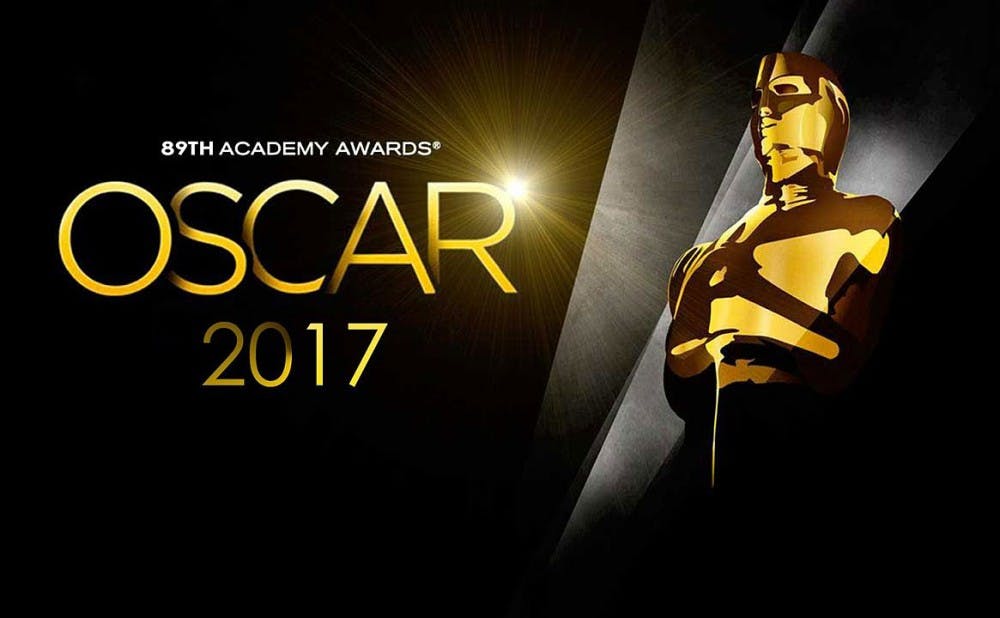The 89th annual Academy Awards were held last Sunday and, in typical award show fashion, it was an indulgent and lackluster Hollywood affair that prompted more eye-rolls than elated outbursts–excluding, of course, the Best Picture fiasco, which was both wildly entertaining and mortifying. And while the ceremony ushered in many positive changes following the #OscarsSoWhite vilification over the last two years, the Academy irrevocably proved that it has ways to go in terms of championing genuine diversity and its perceived liberal ideals.
The ceremony was hosted by Jimmy Kimmel, the late-night talk show host you’ve definitely confused for Jimmy Fallon at one point in time, who gave a routinely uninspired and tasteless performance. He opted for cringe-worthy and borderline racist jabs at the names of multiple people of color. (“Jimmy Kimmel thinks Mahershala is a weird name? Jimmy Kimmel sounds like dog treats,” one Twitter user wrote.) He brought his ongoing feud with Matt Damon to the stage, a shtick that quickly grew trite for everyone but the small cohort of people who actually detest Matt Damon. He tweeted Donald Trump and patted the Academy on the back for being less racist than America’s president.
Somehow, though, Kimmel’s low-brow and hackneyed mess of jokes wasn’t the most upsetting part of the night. The Academy managed to laud two different men with abusive, sexist and sexually inappropriate pasts. Mel Gibson, who allegedly beat his ex-wife Oksana Grigorieva in 2010 and definitely told her that she deserved to be raped, was nominated for the Best Director award for his work on “Hacksaw Ridge.” Casey Affleck, who was sued by two female crew members for sexual harassment in 2010, won Best Actor in a Leading Role for his part in “Manchester by the Sea.”
Irrespective of both men’s individual talents and abilities, the Academy has a less-than-stellar record awarding sex criminals and abusers. Roman Polanski, a convicted statutory rapist, won a directing Oscar in 2003 and Woody Allen, an alleged child molester who married his adopted daughter, has run the gamut for Oscar nominations and wins. There’s an entire discussion to be held as to whether or not art should be judged separately from its artist, but when it came time to hand Casey Affleck his Oscar, something felt entirely immoral about the exchange. Even the presenter, Brie Larson, refused to clap after Affleck’s win.
The evening, which was poised to be a historic sweep for Damien Chazelle’s somewhat controversial but highly popular “La La Land,” took a sharp turn after many awards that were supposedly set in stone were given to apparent dark horses. The award for Best Sound Mixing went to “Hacksaw Ridge” over “La La Land,” curious given the fact that the latter was a musical, but explainable knowing that the Academy has a soft spot for war movies in this category. Likewise, “Hacksaw Ridge” upended “La La Land” once again when it won Best Editing, an award typically reserved for movies with some semblance of pacing and coherent cuts (sorry, not sorry).
Still, “La La Land” took home a considerable amount of technical awards and Emma Stone managed to snag the Oscar for Best Actress in a Leading Role, solidifying the film’s reign over the current awards season. Most deserved, perhaps, was Damien Chazelle’s award for Best Director—the opening sequence of “La La Land” alone was enough to christen the budding filmmaker as a visionary, and his win will indubitably elevate him as a director whose work will be highly-anticipated for years to come.
It was at the close of the ceremony, though, when the slow step of the evening exploded into a moment that will inevitably be relayed in excitement to our future children. (“Mom, where were you when the 2017 Oscars gaffe went down?”) Faye Dunaway announced that “La La Land” won Best Picture and nothing seemed out of the ordinary—it was the anointed darling of the night—but the win felt wrong. As radical as “La La Land” claimed to be, it was still a film directed by, starring and centered around white folks in Los Angeles, and it was certainly not the best film nominated.
And then the Oscars producers rushed the stage as the cast and crew of “La La Land” accepted the Best Picture award, awkwardly relaying to the emotional horde that a mistake had been made: “Moonlight” was the actual winner. Cue gasps, hysteria and confusion throughout both the Dolby Theatre and every film-lover’s living room.
In that moment, as unfair as it was for the crews of both “La La Land” and “Moonlight,” the Academy proved that it had learned from its previous, white-washed mistakes. Allowing for descriptive representation in this year’s voting bloc affected a modicum of substantive representation in the awards given out, especially provided that “Moonlight” is a film about a black gay man who isn’t a slave, a civil rights activist or a token. Ceremonies like the Oscars may claim to be about rewarding the “best” work of the year, but they’re also a reflection of the values and stories we hold dear as a society. Films do not exist separately from their surroundings–they are intertwined with real people and real experiences. By awarding “Moonlight” with Best Picture, the Academy validated and respected a highly compelling and important story.
So while the 89th Academy Awards ceremony was not profound in the sense that it repeated many of its problematic behaviors, its shining moments proved that “risky” films (read: movies with an all-black cast and a gay lead character) can win Academy Awards and garner commercial success. Regardless of the innumerable ups and downs of Sunday’s show, one fact remains clear: positive change is on the horizon for the Oscars and the film industry as a whole.
Get The Chronicle straight to your inbox
Signup for our weekly newsletter. Cancel at any time.

